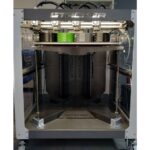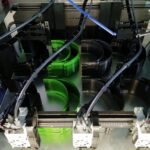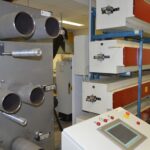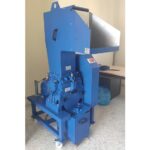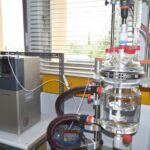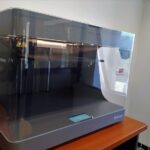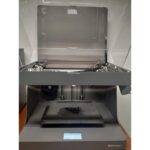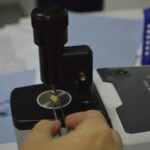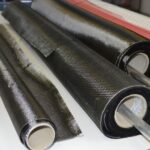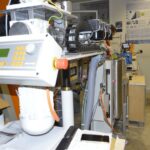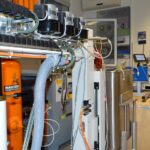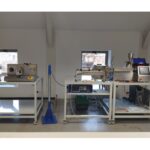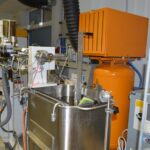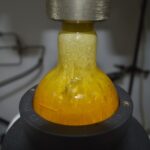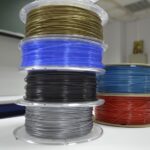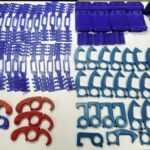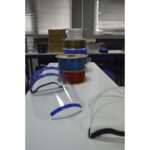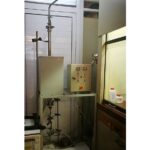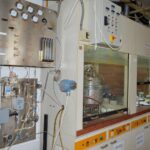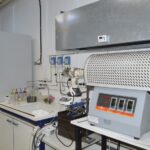Research Lab of Advanced, Composite, Nano Materials and Nanotechnology
Director
The Laboratory of Advanced and Composite Materials, Nanomaterials, Nanoprocesses and Nanotechnology (R-NanoLab), https://r-nano.gr/, is based at the School of Chemical Engineering of the National Technical University of Athens (NTUA). It was initially founded as a research unit in 2007 and, since 2018 (Government Gazette, Issue B’ 699/02.03.2018), it has been an officially established Laboratory under the direction of NTUA Professor Costas Charitidis. The Laboratory covers research and educational needs in the scientific field of the study and production of advanced materials, including advanced polymers, nanomaterials, composites and nanocomposites, both on a laboratory and pilot scale, as well as the characterization of their properties.
Originally established as a research unit in 2007, the Laboratory has been operating as an officially recognized NTUA Laboratory since 2018 (Government Gazette, Issue B’ 699/02.03.2018), under the direction of Professor Costas Charitidis. It addresses research and educational needs in the field of advanced materials, including advanced polymers, nanomaterials, composites, and nanocomposites, both at laboratory and pilot scale, as well as the characterization of their properties.
The multidisciplinary R-NanoLab team includes Chemical Engineers, Chemists, Materials Scientists, Physicists, Applied Mathematicians, Mechanical Engineers, and Mining Engineers, with extensive experience in materials design, processing, and characterization. The team consists of four professors, seventeen researchers, fourteen PhD candidates and postgraduate students, and technical staff. Research activities emphasize the development of innovative materials in an environment of strong interdisciplinarity, bridging fundamental and applied science. A key driver of growth and innovation is the Laboratory’s active collaboration with industry, aiming to deliver solutions to real-world challenges.
R-NanoLab’s research excellence is demonstrated by numerous publications in peer-reviewed international journals, participation in major conferences, and an impressive success rate (~43%) in securing competitive funding from national and European programs. The Laboratory has participated in over sixty research projects with a total budget of approximately €160 million, including €14 million allocated to NTUA.
Members of the Laboratory participate in numerous European networks and initiatives promoting research collaboration and knowledge exchange, such as the European Materials Characterization Council (EMCC), the European Materials Modelling Council (EMMC), the NanoSafety Cluster, the European Network for Pilot Production Facilities and Innovation Hubs, the Carbon Fibres & Advanced High-Performance Composites Cluster, the European Technology Platform for Advanced Engineering Materials and Technologies, and the Plastics Circularity Multiplier initiative on plastics recycling and circular economy.
R-NanoLab hosts state-of-the-art facilities for material synthesis, processing, and characterization, as well as pilot production lines located at NTUA’s Zografou Campus and the Lavrion Technological and Cultural Park. Its infrastructure includes laboratories for chemical analysis, electrochemistry, chemical vapor deposition, advanced material characterization, 3D printing, and a high-performance computing center equipped with simulation software. The pilot lines support the production of carbon fibers and polymer filaments for 3D printing.
The Laboratory develops organic and inorganic nanoparticles, including multi-walled carbon nanotubes, graphene and graphene oxide, magnetic nanoparticles, and nanocarriers, in both native and surface-functionalized forms. These materials are employed across a broad range of technical applications, such as antimicrobial and anticorrosive coatings, self-healing concrete, high-performance composites for automotive and aerospace sectors, and advanced energy-storage systems. Many of these nanomaterials are already being produced on a larger scale for ongoing research and development activities.
Beyond synthesis, the Laboratory specializes in advanced characterization methodologies for nanomaterials and composites, employing high-precision analytical techniques. Dedicated protocols are applied to study nanoscale mechanisms and phenomena that determine the microstructure and macroscopic behavior of materials. Structural and functional analysis capabilities include optical and electron microscopy, atomic force microscopy, X-ray tomography and spectroscopy, Raman spectroscopy, nanoindentation, hardness testing, contact angle measurements, and electrochemical techniques such as cyclic voltammetry, electrochemical impedance spectroscopy, and potentiodynamic polarization. Experimental work is complemented by computational modeling and simulation using advanced mathematical and software tools.
To facilitate the scaling-up of laboratory processes and the deployment of developed materials, R-NanoLab also implements supporting methodologies such as life-cycle assessment (LCA), Safe-by-Design approaches, techno-economic evaluation, nanotechnology sustainability studies, and machine-learning-assisted data analysis. Furthermore, the Laboratory actively explores the social and ethical dimensions of nanotechnology, promoting responsible innovation across all stages of research and development.



